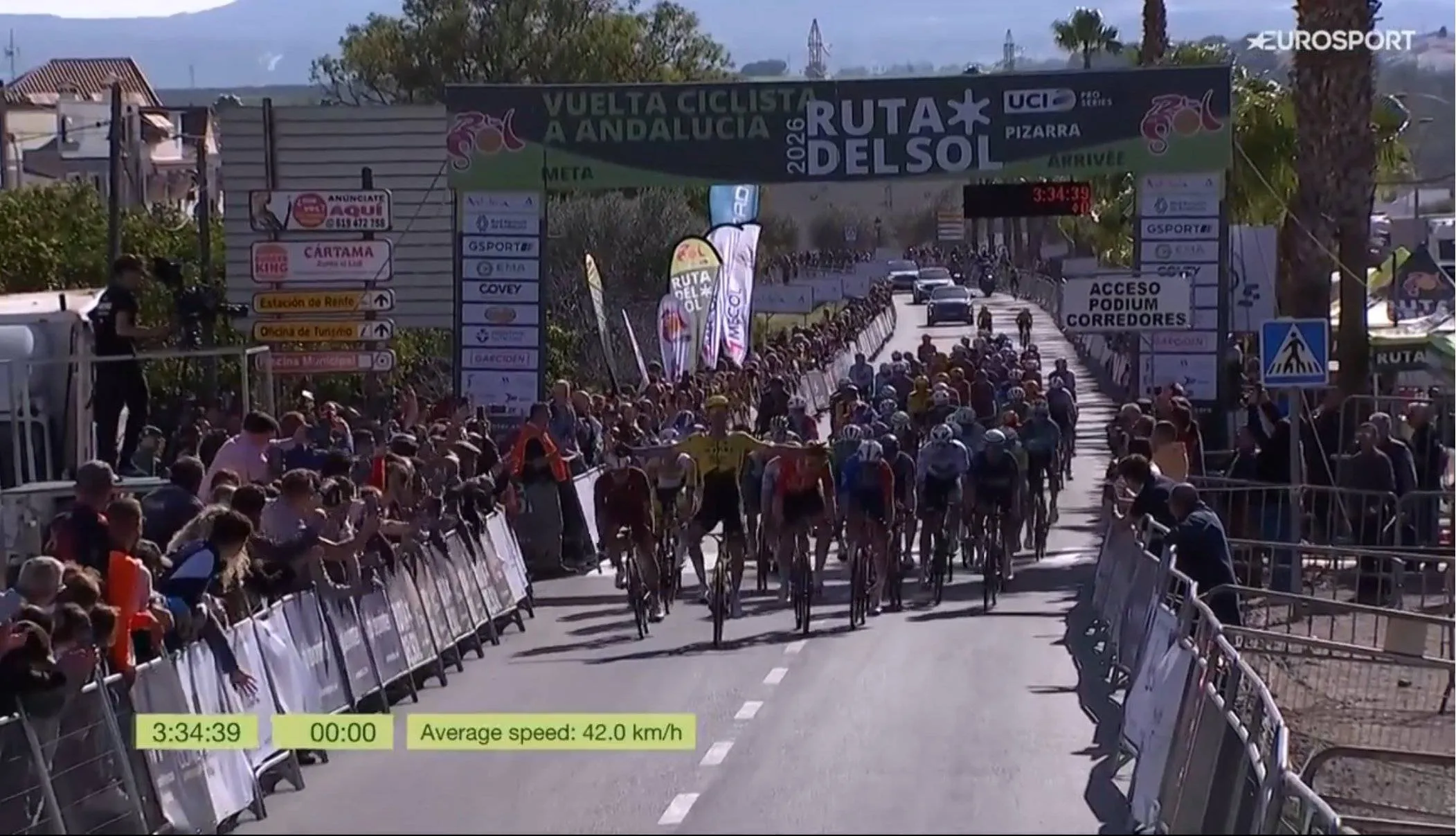"Whoever hands out yellow cards will have to be able to judge well what is and isn't acceptable" - Greg Van Avermaet weighs in on yellow card debate
CyclingThursday, 20 February 2025 at 07:30

Greg Van Avermaet has shared his thoughts on the use of
yellow cards in cycling, a rule introduced last summer to enhance safety in the
sport and punish those who don’t compete within the regulations. But has it
been successful?
The discussion arose after stage 1 of the UAE Tour, where
Jasper Philipsen was demoted following the finish due to what the UCI deemed a
dangerous sprint. The decision reignited debate on the effectiveness and
clarity of the yellow card system, as well as its ability to actually increase rider
safety.
Read also
Speaking on the Sporza Daily podcast, Van Avermaet
commented, "The Philipsen case is an interesting situation."
"It was a typical reaction of disappointment, where he
swerved. It's difficult to estimate, but I wouldn't declassify him anyway. The
sprint had been completed and the speed wasn't too high. But in other
situations, it could have been yellow."
Van Avermaet acknowledged the challenge in fairly
distributing penalties. "Whoever hands out yellow cards will have to be
able to judge well what is and isn't acceptable."
Read also
The former Olympic champion believes that the role of former
professional cyclists is crucial in these decisions. "It is important that
former riders decide on these kinds of matters. They have been in these kinds
of situations themselves and can assess it better. If you have not done it
yourself, it is difficult to judge it," he stated.
The controversy surrounding Philipsen is not new. His
sprinting has been criticised on multiple occasions, including at the 2023 and
2024 Tour de France, where he was accused of dangerous manoeuvres.
At 26 years old, Philipsen is arguably the best sprinter in
the world, boasting nine Tour de France stage wins and a Vuelta a Espana stage
victory. However, his aggressive sprinting style continues to divide opinion,
making the enforcement of safety rules all the more significant as 2025 goes
on.
Read also
claps 0visitors 0
Just in
Popular news
Latest comments
- Great champion Remco but his profile is more suitable for Ardennes-like races and tour with no very hard climbs. Not only Tadej and Vingegaard, there are a lot of younger cyclists (del Toro, Ayuso, maybe Seixas, Nordhagen and others) that will soon be big GC boys.
 maria2024202418-02-2026
maria2024202418-02-2026 - Evenopoel 1st real test, and he failedZamorano18-02-2026
- Remco is not the natural climber that riders like Tadej or Jonas are, no matter how much he trains and prepares for it. Yes, you can TT your way up moderately steep hills, but when the gradient gets super steep, he just can't keep up.
 santiagobenites18-02-2026
santiagobenites18-02-2026 - So against the better riders and a long mountain, Remco cracked. Sorry but way away from Pog and Jonasabstractengineer18-02-2026
- “I was portrayed as the devil" Bruyneel was really a talented team manager. His minor flaws: "coordinated, well-funded, and sophisticated doping regime" "hand-in-hand in implementing the team-wide doping programme" "was involved in trafficking and administering prohibited substances and methods, including EPO, blood transfusions, testosterone, human growth hormone, and cortisone. Teammates testified that nothing significant happened without Bruyneel's knowledge and approval." "fostered an environment where doping was considered a "fact of life" and necessary for success, effectively making it a condition of survival on the team. He also participated in or assisted with the cover-up of positive tests and doping violations." Those quotes show Bruyneel's true talent.Cyclingnut18-02-2026
- Fed up hearing "their" voicesslappers6618-02-2026
- When you join Ineos , learning , time , no pressure go out of the windowabstractengineer18-02-2026
- The UCI screws up againcaptmike18-02-2026
- No matter what people say - I'll watch it. And I bet all the complainers will do it too....averagecyclist18-02-2026
- Exactly what I'm thinking about it. Moreover Van Glis had a lot of time to rethink his situation but decided to stay where he was.averagecyclist18-02-2026
Loading
Write a comment










